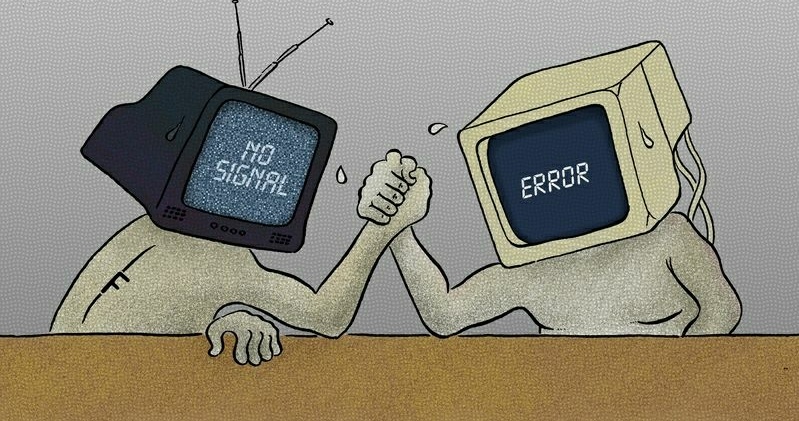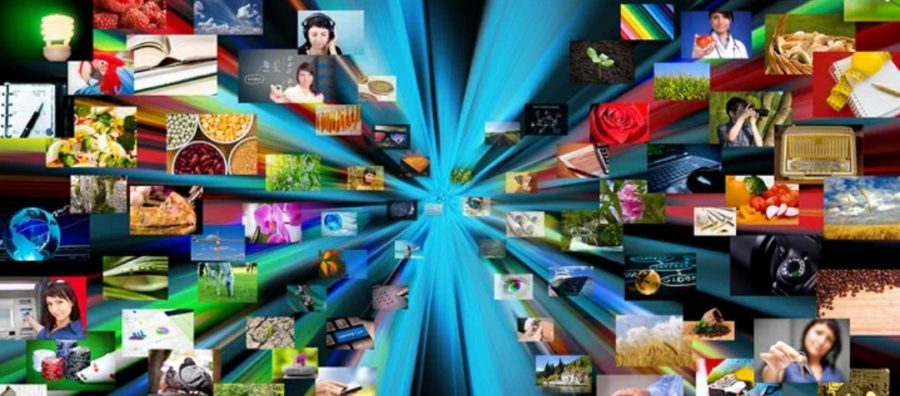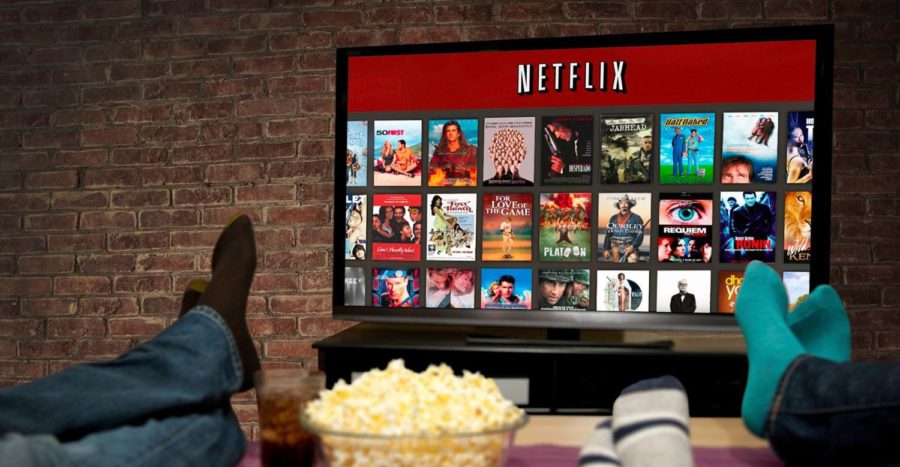Who will emerge victorious from this confrontation?

With a certain frequency, I hear from my relatives and friends the phrase “have you watched the news?”, After which there is usually a discussion of one or another event. Some time ago I thought about it and realized that I rarely watch the news, because in fact, he gave up watching television, giving the Internet on mobile devices and a laptop all the functions of TV: education and entertainment.
Only in the case of the Internet, the information consumed is more personalized. Why am I? There is an opinion that TV as a source of information is becoming obsolete and will soon cease to exist. Is it so? Understanding.

Not to say that my transition to online media was due to some external factors, but it happened. I do not criticize modern television, although some things sometimes really want to change. Let's start with the case for the internet and mobile.
Advertising
One of the complaints about television is the dominance of advertising. Few people like to watch their favorite movie or TV series with frequent pauses on annoying commercials. There is a category of users who are ready to record their favorite programs, just not to waste their time and moral resources on advertising. With the Internet and mobile applications, everything is a little easier. On almost any mobile and desktop platform, you can find solutions that disable banner ads, prevent click-throughs from pop-ups and focus the user's attention directly on the content. At the end of the day, you can download the files you need and watch without having to connect to the Internet.
Variety of content
The Internet offers a much more extensive list of information on completely different topics, access to it is much easier, there is no need to buy more and more new subscriptions to the channels of interest. At the same time, there are no restrictions on the language, you can find almost anything. Accessibility and thematic variety is a great advantage of web content.

It so happened that television has developed a certain approach to the presentation and content of programs, filling the broadcast program, and so on. In this case, there is a kind of ranking according to age, the division of streams according to interests. Someone is close to this approach, someone, on the contrary, does not like it when they decide for him what and when to watch.
Popular among young people
Over the past 5-10 years, young people watch less TV, preferring online media and YouTube. And it’s probably not about the notorious conflict between fathers and children. It's just that new platforms and new formats are gradually eating away at television's share of viewers. Netflix, Amazon, SyFy, streaming services – there is no shortage of sources. On top of that, web content creators often focus on the youth audience, engaging them in every possible way to view their media materials with fashionable formats, bold headlines and a viral component.
Additional popularity of the Internet among young people is brought by the constant companions of a modern person – gadgets that allow you to browse the web anywhere, provided you have access to cellular networks or Wi-Fi. Why stay at home when news is available almost everywhere and always?
The web is evolving very quickly and is a serious competitor to television in the conventional sense. But TV won't give up so easily, it has 'trump cards up its sleeve'.
Habit
Many people of different professions, from all social strata and with different views on life consider TV to be a familiar part of their household. Habits and rituals are formed around this subject of consumer electronics, especially for the older generation, for whom the curved screen once became a window to the world. In some cases, the TV simply acts as a 'background' for conversation or work.

But the fact remains: without TV, many literally do not understand their existence, the habit is so strong and the cherished 'blue screen' seems to them so irreplaceable. Popularity with a mass audience follows from habit, and from popularity – the potential for monetization at the expense of the audience.
Strong advertising platform
Probably the main reason why modern television still lives and thrives. Advertising on TV has long turned into an independent art genre, and there are no prerequisites for its disappearance. Serious money is spinning in this industry, tk. there is constant access to the target audience attracted by rating programs and broadcasts. Where there is an influx of viewers, there will always be advertising, in one form or another.
Large screen = easy viewing
Again, watching TV is more convenient. Of course, there are already systems on the market that help to view videos from the Internet with the same success, but the large screen as a way of consuming information is still in the first place. There are those who, for some reason, are uncomfortable watching something on a small smartphone screen with poor resolution.
Development potential
The development of technology has not spared televisions. The thickness decreases, the diagonals and resolution grow, each manufacturer tries to create an ecosystem around its products and keep the user in it as much as possible, attracting innovations and premium design. Televisions have become a status acquisition again, at least we are being pushed towards this concept.

Of course, the development of TV has not been without the influence of the popularity of the Internet. Many smart TVs support a number of web services, built-in access to media directories of online resources, installed browsers, web antiviruses, and so on. And in such a symbiosis is the future.
Future
It seems to me that it's too early to talk about the sunset of TV. Certain evolutionary changes will take place in the industry, which will have to adapt to the current conjuncture and choose new options for further development.
First of all, it is worth understanding that unique content is needed to separate the Internet and TV, but few would agree to lose the opportunity to earn money for this. Major events can be announced on the Internet, attracting the audience to the TV broadcast, and vice versa.
In addition, these two approaches separate different use cases. One is more youthful, mobile and in the spirit of the times, the second is universal and familiar to a wide audience.
Of course, everyone chooses based on their needs, but television and the empire built around it cannot be easily broken. Sharing a useful existence will give impetus to the development of both web content and television media.
